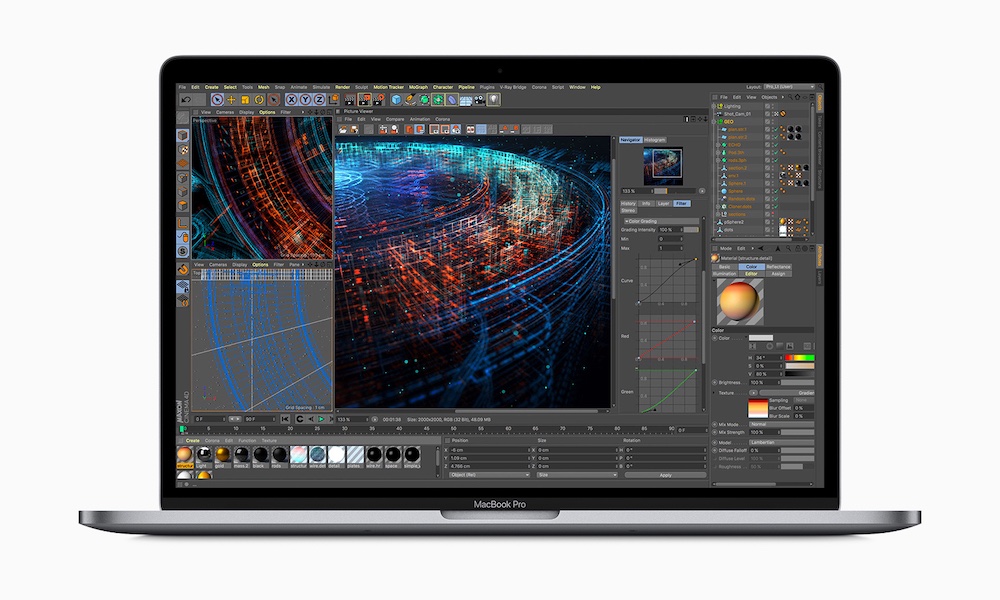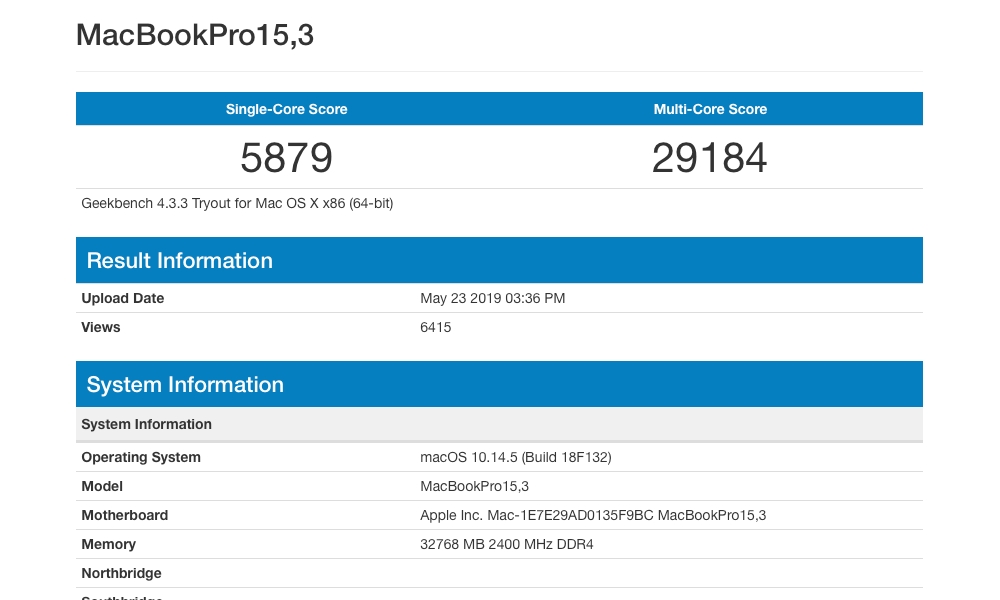The Benchmarks Are In: Apple’s New 8-Core MacBook Pro Is a Powerhouse
 Credit: Apple
Credit: Apple
Toggle Dark Mode
Earlier this week, Apple quietly refreshed its MacBook Pro lineup, with some healthy but mostly unremarkable speed bumps. In the midst of the refresh, however, Apple also unveiled a new ultra-high-end 15-inch model with an eight-core Intel i9-9980HK processor.
While the new top-of-the-line model will set you back $6,459 in its maxed-out configuration — that’s with 32 GB RAM, 4 TB SSD storage, and a Radeon Pro Vega 20 video card — for that price you’ll be getting the kind of power and performance never before seen in an Apple laptop, turbo boosting up to 5 GHz.
Now that the new model is out in the wild, the benchmarks are starting to come in to reveal exactly how powerful this new octo-core MacBook Pro actually is, showing significant improvements over last year’s highest-end six-core model. A Geekbench benchmark discovered by MacRumors showed that the new MacBook Pro earned a single-core score of 5879 and a multi-core score of 29184. This compares to average single-core and multi-core scores of 5348 and 22620, respectively, for last year’s highest-end MacBook Pro, which featured a six-core Intel I9-8950HK chip based on the slightly older Coffee Lake H architecture, as opposed to the refreshed Coffee Lake HR cores found in the new 2019 MacBook Pros.
In practical terms, the Geekbench results show about a 10 percent increase in single-core speeds and an impressive 29 percent in multi-core performance. Apple’s claims are a bit more generous, with the company promising “up to” 40 percent faster performance than a six-core MacBook Pro, and double the performance of a quad-core model. Of course, there are other factors than just raw CPU speed that may contribute to increased performance as well.
It’s also worth noting that Apple sells two variations of the new 8-core MacBook Pro; the base octo-core model comes with a 2.3 GHz i9 that can burst up to 4.8 GHz, with the option to bump that to 2.4/5.0 GHz for an extra $200. It’s this latter, highest-end model that’s been benchmarked here.
While Apple refreshed both the 13- and 15-inch MacBook Pros this week, it’s really only the bigger 15-inch models that are seeing significant performance gains. The updates to the 13-inch MacBook Pros are less remarkable, with all of them still offering only dual- and quad-core i5 and i7 CPUs with a maximum performance of 2.8GHz/4.7GHz, although they’re all using Intel’s latest eighth-generation versions of those CPUs. These are still respectable speed bumps, but nothing that will likely have anybody rushing out to buy a new 13-inch MacBook Pro.
While Apple’s newest MacBook Pro comes the closest we’ve ever seen to offering desktop performance, it still doesn’t quite measure up to Apple’s equivalent desktops. Apple’s 2019 27-inch iMac, equipped with an eight-core 3.6GHz/5.0GHz Intel i9-9900K CPU comes in with average single-core scores of 6224 and multi-core scores of 33143. Of course, it’s also worth noting that these chips use the more powerful Coffee Lake R cores that are designed specifically for use in desktop computers. In short, you’ll still get more bang for your buck in an iMac, but the good news it that there are fewer compromises if you need the portability of a MacBook — you won’t have to sacrifice a ton of performance just to stay mobile. In fact, Apple’s new high-end MacBook Pro is closer in performance to the iMac than it is to its predecessor.
As is usually the case when Apple unveils new MacBook Pros, the price points remain the same as last year, with the baseline 13-inch MacBook Pro available from $1,799 to $3,499 and the 15-inch MacBook Pro starting at $2,399 and going up to $6,549 for a maxed-out configuration. You can order either one from Apple’s online store now, and they should already be starting to appear in physical retail stores.







